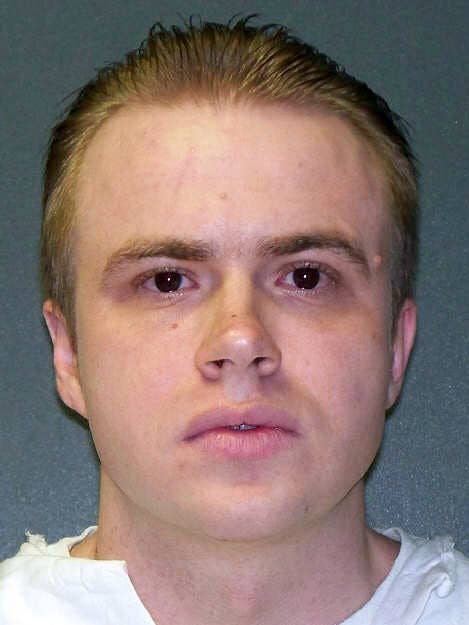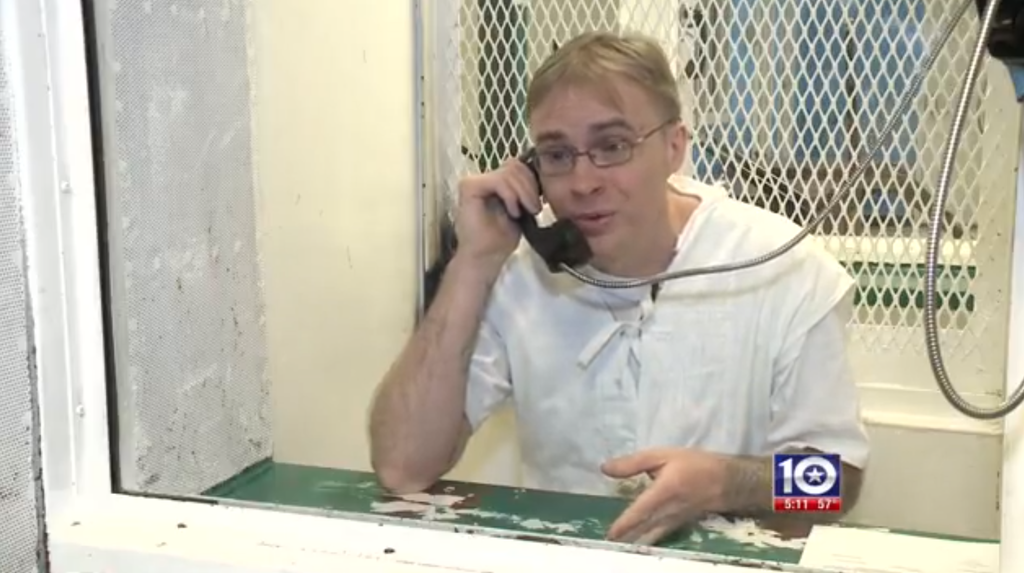
A trial judge granted Robert Pruett's motion for post-conviction DNA testing, effectively stopping his execution on Tuesday, his attorneys told BuzzFeed News.
Pruett's attorneys filed a motion with the Texas district court earlier in the day requesting DNA testing to be conducted on the metal rod that was used to stab Texas corrections officer Daniel Nagle in 1999.
Pruett said that the DNA testing on the rod and the tape wrapped around it would corroborate his claims of innocence.
Robert Pruett, 35, was scheduled to be executed in Texas on Tuesday for the 1999 murder of a corrections officer, Daniel Nagle, while Pruett was serving a life sentence for another crime.
Pruett has maintained his innocence in Nagle's murder, and his attorneys filed a Supreme Court appeal on Monday to stop his execution, the Associated Press reported. On Friday, the 5th Circuit U.S. Court of Appeals denied a request to halt the execution.
Pruett was serving a 99 year sentence at the McConnell Unit in Beeville, Texas, for the 1995 murder of a neighbor when he was 15. His father and brother were also convicted and sentenced for that crime.
Then in December 1999, corrections officer Nagle, 37, died of a heart attack after being stabbed seven times with a shank inside the McConnell unit, according to court documents.
Pruett was convicted of the crime after investigators found a torn-up disciplinary note from Nagle to Pruett near the body. The note accused Pruett of violating prison rules by taking his lunch — a peanut butter and jelly sandwich — into the facility's recreation area.
State prosecutors argued that Pruett was upset over the note and killed Nagle. Only Nagle's blood was found on the disciplinary note and there was no physical evidence tying Pruett to the murder. Most of the evidence against him consisted largely of testimony from inmates, according to court documents.

Pruett was convicted and sentenced to death for Nagle's murder in 2002. He has maintained his innocence and in appeals has argued that he was framed.
He said that others at prison had a motive for wanting Nagle dead because the officer was in the process of writing a grievance about a drug smuggling and money laundering operation at the prison.
During his trial, Pruett testified that he saw Nagle tear up the disciplinary report. However, in later petitions he alleged that "someone else tore up the pieces of the disciplinary report in an attempt to frame him" for Nagle's murder.
State lawyers dismissed his claims as a "conspiracy theory."
Pruett has also argued that the State failed to disclose secret deals made with inmates who testified against him and that it failed to preserve physical evidence which could prove his innocence.
Texas, the state with the most active death penalty, has executed six people this year. Last month, the state acquired a new supply of its lethal injection drug, pentobarbital, from an unidentified "licensed pharmacy" according to a Texas Department of Criminal Justice (TDCJ) official.
The TDCJ said it has enough pentobarbital to conduct four executions, of which one took place earlier this month.
Thumbnail image via KWTX-TV News
